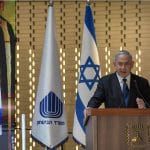A proposed endgame for the Iranian nuclear crisis
By Ozzie Zehner | April 30, 2013
After a long hiatus, the Godot of US-Iran diplomacy may finally arrive in 2013, in light of the reciprocal overture at the recent Munich Security Conference, featuring the signs of a new approach to Iran articulated by Vice President Joe Biden. Iran's foreign minister, Ali Akbar Salehi, who also attended the conference, welcomed Biden's call for "serious dialogue" between the two countries and urged Washington to show its good will toward Iran. And although Iran's spiritual leader has questioned the wisdom of bilateral talks with the United States as long as it is "pointing a gun," Iran has nonetheless moved the chess pieces forward by agreeing to the next round of multilateral talks with the UN Security Council's five permanent members plus Germany (or P5 + 1), which begin in Kazakhstan this week.
After several rounds of inconclusive Iranian talks last year — in Istanbul, Baghdad, and Moscow — the expectations are naturally low that the coming talks can yield a significant breakthrough on the central issue of Iran's nuclear standoff. Despite coercive sanctions, Iran remains adamant about continuing its controversial nuclear program and defying UN Security Council resolutions that demand a full suspension of uranium enrichment activities. In fact, Iran has now informed the International Atomic Energy Agency (IAEA) that it will modernize its centrifuges, improving its mastery of the nuclear fuel cycle.
In effect, this means that the official US position of "zero centrifuges" is a non-starter. It should be replaced with an approach that seeks nonproliferation objectives without the harmful misperceptions and counter-productive rhetoric that hinder dialogue and a peaceful resolution of the Iranian crisis. One such misperception is that Iran is on the proliferation path, and therefore the United States is firmly committed to preventing Iran from acquiring a nuclear-weapon capability, to paraphrase former US Secretary of State Hillary Clinton's farewell speech. This approach has now resulted in comprehensive (i.e., both multilateral and unilateral) sanctions that have hurt the Iranian economy and both its oil and non-oil trade.
But, it is time to end this misperception and change the coercive diplomacy emanating from it, in favor of a realistic approach that recognizes that Iran's nuclear ambition is not to turn into a North Korea, but rather into another Japan or Brazil — that is, into a country that enjoys its right, under the Nuclear Non-Proliferation Treaty (NPT), to possess a full nuclear fuel cycle without facing external backlash.
From Iran's vantage, the coercive Western approach is unjustified because it overlooks Iran's extensive cooperation with the IAEA, as reflected in more than 4,000 inspector-days of examination of Iran's facilities, including dozens of short-notice inspections, not to mention the surveillance cameras placed at the country's uranium enrichment halls to detect diversion of nuclear material. Not only is there no "smoking gun'" to corroborate the allegations of an Iranian weapons program; all the six questions that were the basis for the initial dispatch of Iran's file to the UN Security Council have been resolved in Iran's favor as a result of an Iran-IAEA work plan begun in 2007.
The IAEA's suspicion of a possible military dimension to Iran's nuclear program has focused on a suspected site at the Parchin military complex. But multiple rounds of Iran-IAEA talks that have resulted in progress toward a new cooperative arrangement, in which IAEA inspectors would be allowed to visit Parchin, just as they did so twice in 2005 without discovering anything suspicious. The fate of this arrangement may rest on the outcome of multilateral talks. Should the talks fail, the mounting pressure on Iran will likely backfire and move it in the direction of reducing its cooperation with the IAEA. In a worst-case scenario, the failure of the talks could exacerbate political momentum inside Iran in favor of exiting the NPT, in retaliation for unlawful pressures that seek to deprive Iran of its "inalienable" nuclear rights. The United States and its allies should therefore be careful not to escalate the crisis, which can be resolved by good faith negotiations on both sides.
Another problem with the Western approach toward Iran is that it does not make the necessary conceptual distinction between an indirect or latent nuclear capability and a drive to create nuclear weapons. Like other countries that possess a nuclear fuel cycle, such as Japan, Iran today has a latent nuclear capability that is a byproduct of its NPT-based nuclear progress, rather than a deliberate (i.e., illegal and clandestine) proliferation march. The mere suspicion that Iran's capability will be misused in the future and bring Iran to the weaponization threshold cannot be the basis to deprive a country of its nuclear rights. The fact of the matter is that Iran has not breached its international obligations by seeking a nuclear fuel cycle, and its many corrective steps in the past several years have put it in good standing with its safeguard commitments. Instead of dysfunctional coercive diplomacy, the West should focus on the merits of an alternative strategy that centers on persuading Iran, through incentives and lack of security threats, to keep its indirect nuclear capability dormant indefinitely. Such a counter-proliferation strategy should respect Iran's NPT rights and avoid making extra-legal demands from Iran to forfeit its fuel cycle.
As a quid pro quo for a change in the Western approach, Iran may well agree to several confidence-building measures, such as agreeing not to enrich beyond 20 percent, allowing more intrusive inspections, adopting the Additional Protocol to its IAEA safeguards agreement, converting its enriched uranium into fuel rods, and even permanent IAEA inspectors in Iran and a temporary suspension of 20 percent enrichment. Moreover, Iran has offered to register Supreme Leader Ali Khamenei's edict against nuclear weapons at the United Nations, as a further evidence of its commitment to non-proliferation. And Iran has declared its willingness to actively participate at a future conference on a Middle East nuclear weapons-free zone.
The stalemated US-Iran relations can begin to unfreeze, and both countries can contemplate a reset of their hitherto hostile relations, if they focus on the rather extensive areas of common interest, such as regional stability. Once decoupled from the unrealistic option of no Iranian enrichment, and acknowledging Iran's ability for industrial-scale enrichment, US policy could then begin to make inroads, building confidence with Iran and harvesting the benefits of keeping Iran's nuclear capability perpetually latent. This US policy shift does not require a "grand bargain" with Iran, but rather a drastic policy adjustment, whereby the gradual dissolution of sanctions against Iran would go hand in hand with Iran's increased cooperation with the IAEA on the one hand and the unfreezing of US-Iran economic ties on the other. US companies would then be able to benefit from their reintroduction to a 76-million-inhabitant market in a vital section of the world.
At the same time, it is imperative to avoid simplistic notions that the longstanding US-Iran strategic competition can dissolve into perfect harmony, given Iran's lack of interest in joining any Western-led security arrangement in the region, revising its pro-Palestinian policy, or relinquishing its revisionist push for new global management, a role it is currently playing under the rubric of chairing the Non-Aligned Movement. Although US-Iran relations will likely continue to be beset by a variety of problems for the foreseeable future, a nuclear breakthrough can herald the onset of a new chapter in those relations — one that will, hopefully, give the upper hand to the cooperative rather than the competitive sides of both countries. One thing is, however, certain: The continuation of the present Western coercive approach toward Iran is a recipe for disaster.
Together, we make the world safer.
The Bulletin elevates expert voices above the noise. But as an independent nonprofit organization, our operations depend on the support of readers like you. Help us continue to deliver quality journalism that holds leaders accountable. Your support of our work at any level is important. In return, we promise our coverage will be understandable, influential, vigilant, solution-oriented, and fair-minded. Together we can make a difference.
Topics: Uncategorized














